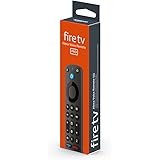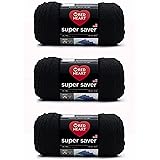GDMINLO Soft Tape Measure Double Scale Body Sewing Flexible Tailor Craft Vinyl Ruler for Weight Loss Medical Body Measurement, Has Centimetre Scale on Reverse Side 60-inch(White)
$3.59 (as of February 3, 2025 12:46 GMT +00:00 - More infoProduct prices and availability are accurate as of the date/time indicated and are subject to change. Any price and availability information displayed on [relevant Amazon Site(s), as applicable] at the time of purchase will apply to the purchase of this product.)Ring Chime
$30.23 (as of February 3, 2025 12:46 GMT +00:00 - More infoProduct prices and availability are accurate as of the date/time indicated and are subject to change. Any price and availability information displayed on [relevant Amazon Site(s), as applicable] at the time of purchase will apply to the purchase of this product.)Owala FreeSip Insulated Stainless Steel Water Bottle with Straw for Sports, Travel, and School BPA-Free Sports Water Bottle, 24 oz, Very, Very Dark
$27.99 (as of February 3, 2025 12:46 GMT +00:00 - More infoProduct prices and availability are accurate as of the date/time indicated and are subject to change. Any price and availability information displayed on [relevant Amazon Site(s), as applicable] at the time of purchase will apply to the purchase of this product.)Ring Chime Pro
$53.99 (as of February 3, 2025 12:46 GMT +00:00 - More infoProduct prices and availability are accurate as of the date/time indicated and are subject to change. Any price and availability information displayed on [relevant Amazon Site(s), as applicable] at the time of purchase will apply to the purchase of this product.)Amazon Fire TV Alexa Voice Remote Pro (newest model) with remote finder, TV controls, and backlit buttons
$26.87 (as of February 3, 2025 12:46 GMT +00:00 - More infoProduct prices and availability are accurate as of the date/time indicated and are subject to change. Any price and availability information displayed on [relevant Amazon Site(s), as applicable] at the time of purchase will apply to the purchase of this product.)Pepsi Caffeine Free is a variant of the iconic cola brand that has been around for decades. While it may seem like a straightforward product, there’s more to this beverage than meets the eye. In this article, we’ll delve into the history of Pepsi Caffeine Free, its ingredients, nutritional content, and how it stacks up against other caffeine-free options in the market.
A Brief History
Pepsi Caffeine Free was first introduced in 1964 as a response to growing consumer demand for decaffeinated beverages. At the time, coffee and tea were the primary sources of caffeine consumption, but cola-based drinks like Pepsi were also gaining popularity. To cater to those who wanted to enjoy the taste of cola without the stimulant effects of caffeine, Pepsi created its first caffeine-free variant.
Ingredients
So, what makes Pepsi Caffeine Free different from regular Pepsi? The main difference lies in the ingredients used to create the decaffeination process. Here’s a breakdown of the key components:
- Carbonated water
- Sugar (in the form of high fructose corn syrup)
- Caramel color
- Natural flavors
- Phosphoric acid
- Calcium disodium EDTA (preservative)
The caffeine content is, of course, removed from the formula. To achieve this, Pepsi uses a process called decaffeination, which involves soaking the coffee beans used in the cola flavoring with solvent to extract most of the caffeine.
Nutritional Content
When it comes to nutritional content, Pepsi Caffeine Free is not far off from regular Pepsi. Here’s a comparison:
- Calories: 150 per 12 oz serving
- Sugar: 41 grams (in the form of high fructose corn syrup)
- Sodium: 39 mg
- Total fat: 0g
While it may seem like a relatively harmless beverage, it’s essential to note that regular consumption can lead to increased sugar intake and potential health risks.
Comparison with Competitors
Pepsi Caffeine Free is not the only caffeine-free cola option available in the market. Here are some competitors:
- Coca-Cola Caffeine Free: Similar ingredients and nutritional content, but with a slightly different flavor profile.
- RC Cola Caffeine Free: Uses a more natural sweetener blend and has a distinct taste that’s often described as more robust than Pepsi or Coke.
- Diet Rite Pure Zero Cola: A sugar-free and calorie-free cola option that uses artificial sweeteners like sucralose.
When it comes to taste, Pepsi Caffeine Free stands out with its distinctive blend of spices and natural flavors. However, those who prefer a more robust or spicy cola taste may find the other options more appealing.
Conclusion
Pepsi Caffeine Free is an interesting variant that offers a unique twist on the classic cola experience. While it may not be the healthiest beverage option, it’s certainly a convenient choice for those who want to enjoy the taste of cola without the stimulating effects of caffeine. Whether you’re a long-time Pepsi fan or just looking for a caffeine-free alternative, this product is definitely worth trying.
Technical Specifications:
- Net contents: 12 fl oz (355 ml)
- Serving size: 1 serving
- Servings per container: 1
- Best by date: See label
- Storage instructions: Store in a cool, dry place
In conclusion, Pepsi Caffeine Free is an intriguing product that offers a unique take on the classic cola experience. Whether you’re looking for a caffeine-free alternative or just want to mix things up, this beverage is definitely worth trying.













